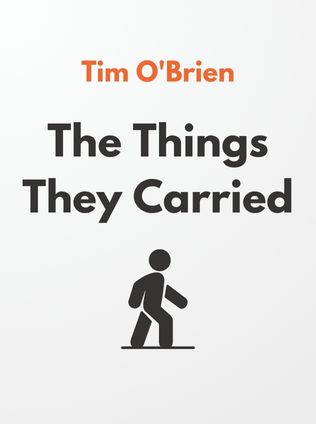
About the Author
Tim O’Brien, born in 1946 in Austin, Minnesota, stands as one of the most significant voices in American literature, particularly in the domain of war narratives. His early life was marked by a quiet upbringing in the small town of Worthington, which he would later describe as a place steeped in conservative values and traditional American ideals. These values would play a significant role in shaping O’Brien’s perceptions of war, duty, and honor—concepts he would later scrutinize and deconstruct in his works. After graduating from Macalester College in 1968, O’Brien was drafted into the United States Army and sent to Vietnam, where he served in the 23rd Infantry Division. His experiences in Vietnam would become the foundation of much of his literary work, providing a rich, albeit traumatic, source of material for his exploration of the human condition under the duress of war.
O’Brien’s writing is known for its fluid blend of autobiography and fiction, a technique that challenges readers to question the nature of truth in storytelling. This approach is most evident in his acclaimed novel, "The Things They Carried," published in 1990. The book is often classified as a work of fiction, yet it is deeply rooted in O’Brien’s personal experiences as a Vietnam War veteran. The line between the author’s real-life experiences and the fictionalized accounts in his book is deliberately blurred, making it difficult for readers to distinguish fact from fiction. This blurring serves a greater purpose, as O’Brien invites his audience to consider the emotional truths that often transcend factual accuracy.
Throughout his career, O’Brien has been lauded for his ability to convey the complexities of war with an unflinching honesty that resonates with both veterans and civilians alike. His works, including If I Die in a Combat Zone, Box Me Up and Ship Me Home (1973), Going After Cacciato (1978), and In the Lake of the Woods (1994), continue to be studied for their insightful and often unsettling portrayal of the psychological burdens carried by soldiers. O’Brien’s unique narrative style, which frequently intertwines memory, imagination, and reality, reflects his belief that the essence of a story often lies not in its factual basis but in its ability to evoke a profound emotional response in the reader.
Main Idea
At its core, "The Things They Carried" is a profound meditation on the nature of war and its enduring impact on those who fight it. The book is not just a collection of war stories; it is an intricate exploration of the burdens—both physical and psychological—that soldiers carry with them during and after their service. These burdens include the tangible weight of their gear and the intangible weight of their memories, fears, and regrets. O’Brien delves into the psychological trauma experienced by soldiers, the ways in which they become desensitized to violence and death, and the role that storytelling plays in coping with the horrors of war.
One of the central themes of the book is the idea that the truth of a war story is not always found in its factual accuracy, but rather in the emotional truth it conveys. O’Brien introduces the concept of "story-truth" versus "happening-truth," suggesting that the stories we tell ourselves and others about our experiences can sometimes be more truthful in capturing the essence of those experiences than a mere recounting of events. Through this lens, O’Brien examines the power of storytelling as a means of making sense of the chaos and trauma of war, as well as a way of preserving the memories of those who were lost.
Table of Contents
- The Trauma of War
- Brutalization and Dehumanization
- Fear of Shame
- The Power of Storytelling
- Conclusion
The Trauma of War
O’Brien’s depiction of the trauma of war is both harrowing and deeply personal. The soldiers in "The Things They Carried" are not just fighting an external enemy; they are battling the internal demons that war has unleashed within them. The physical threats are evident—soldiers are maimed, injured, and killed in sudden, brutal ways. But O’Brien emphasizes that the psychological scars are just as profound, if not more so. The constant fear of death, the isolation from loved ones, and the relentless exposure to violence erode the soldiers’ mental and emotional well-being.
The soldiers carry more than just their physical gear; they carry the weight of fear, guilt, and the memories of those who have died. O’Brien writes,
“They carried all the emotional baggage of men who might die. Grief, terror, love, longing—these were intangibles, but the intangibles had their own mass and specific gravity, they had tangible weight.”
Sign up for FREE and get access to 1,400+ books summaries.
You May Also Like
The Subtle Art of Not Giving a F*ck
A Counterintuitive Approach to Living a Good Life
By Mark MansonHow To Win Friends and Influence People
The All-Time Classic Manual Of People Skills
By Dale CarnegieFreakonomics
A Rogue Economist Explores the Hidden Side of Everything
By Steven D. Levitt and Stephen J. DubnerI Am Malala
The Story of the Girl Who Stood Up for Education and Was Shot by the Taliban
By Malala Yousafzai



















